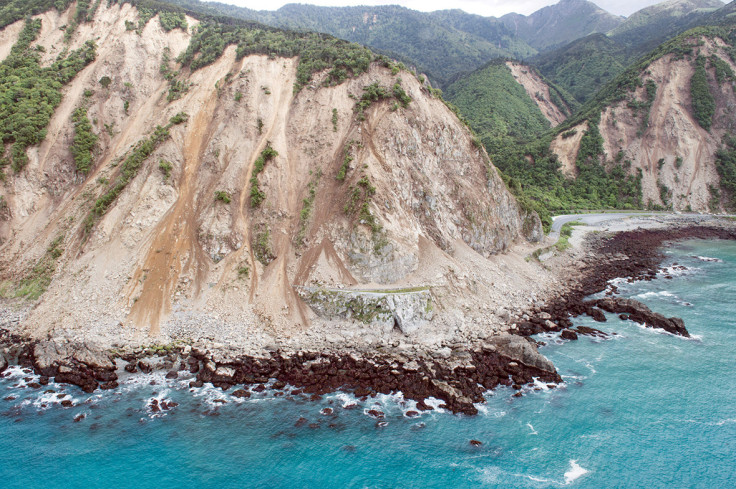Whalesong reaction to the Kaikoura earthquake recorded
The calls of several whale species not known in New Zealand were captured there for the first time.
An array of underwater microphones has gathered the first recordings of beaked whales' song in New Zealand waters, as well as Antarctic blue whales and Antarctic minke whales before and after the magnitude 7.8 earthquake that struck New Zealand late last year.
New Zealand's National Institute of Water and Atmospheric Research (NIWA) deployed seven underwater recording stations in the Cook Strait for six months in the second half of 2016.
The six months of data will take some sifting through before the full impact of the earthquake on the whales can be understood. The reaction will be a complex one to assess, as some of the whalesongs recorded are a world-first.
The notoriously shy beaked whales spend the vast majority of their time on deep dives. As a result, their interactions have been largely unknown. Gray's beaked whale and the strap-toothed beaked whale have never been recorded off the New Zealand coast before.
"There is just nothing known about these animals – they are very elusive, deep diving animals which can spend over an hour on a single dive and surface for a very short time so they are not often documented," marine ecologist Kim Goetz of NIWA, who is leading the research programme, said in a statement.
"More than half the world's whale and dolphin species are found in New Zealand waters, yet very little is known about their migration paths, their behaviour and where they go."
The massive Kaikoura earthquake, which struck New Zealand's south island on 14 November, was also registered by the underwater microphones, but was too loud and large to be accurately recorded.
"There's a decent amount known about how land mammals respond to earthquakes, but no one knows anything about marine mammals underwater. Just because it goes quiet, doesn't mean they're not there," Goetz told Stuff NZ.

Distinguishing between the range of whale calls in the recordings will be one of the major challenges, she said.
"The tricky thing with vocalisations is linking the sounds with the right species – if you don't know what an animal sounds like you can't say what it is."
So far the researchers say they are confident from the recordings that Antarctic blue whales have been entering New Zealand waters. Antarctic minke whales have also been detected in the region for the first time, Goetz said.
"It matches the time minkes are known to go into Australian waters but they have never been acoustically recorded here before."
© Copyright IBTimes 2025. All rights reserved.






















